
-
Find the right food for your petTake this quiz to see which food may be the best for your furry friend.Find the right food for your petTake this quiz to see which food may be the best for your furry friend.Featured products
 Perfect Digestion Small & Mini Adult Dog Food
Perfect Digestion Small & Mini Adult Dog FoodHill's Science Plan Perfect Digestion Small & Mini Adult Dog Food with Turkey is a complete premium pet food for small breed adult dogs aged 1–6 years. This deliciously smooth mousse is precisely balanced to deliver the appropriate amount of energy and to support digestive health in adult, small breed dogs.
Shop Now Hypoallergenic Small & Mini Adult Dog Food
Hypoallergenic Small & Mini Adult Dog FoodHILL'S SCIENCE PLAN Hypoallergenic Small&Mini Adult dog food with Salmon is complete pet food for adult small dogs 1–6 years old. It's formulated for dogs with delicate skin and stomach, with limited high quality novel protein sources & no grain.
Shop Now Perfect Weight Small & Mini Adult Dog Food
Perfect Weight Small & Mini Adult Dog FoodHill's Science Plan Adult Small & Mini Dog Food with Turkey is a complete premium pet food for adult small dogs from 1 year old that are prone to weight gain or slightly overweight. This deliciously smooth mousse is formulated to deliver the appropriate amount of energy to support weight maintenance in adult dogs.
Shop NowFeatured products Sterilised Mature Adult Cat Food
Sterilised Mature Adult Cat FoodHill's Science Plan Sterilised Cat Mature Adult Cat Food with Chicken is specially formulated with ActivBiome+ Multi-Benefit Technology. It is a precisely balanced nutrition tailored to meet the needs of mature adult sterilised cats, ages 7+, and to promote graceful ageing.
Shop Now Oral Care Adult Cat Food
Oral Care Adult Cat FoodHill's Science Plan Oral Care Adult Cat Food with Chicken contains clinically proven kibble technology to reduce plaque & tartar build up.
Shop Now Urinary Health Adult Cat Food with Chicken
Urinary Health Adult Cat Food with ChickenHill's Science Plan Urinary Health Adult Cat Food with Chicken supports the health of the whole urinary system. Suitable for sterilised cats.
Shop Now -
Dog
- Dog Tips & Articles
-
Health Category
- Weight
- Food & Environmental Sensitivities
- Urinary
- Digestive
- Joint
- Kidney
-
Life Stage
- Puppy Nutrition
- Adult Nutrition
- Senior Nutrition
Cat- Cat Tips & Articles
-
Health Category
- Weight
- Skin & Food Sensitivities
- Urinary
- Digestive
- Kidney
-
Life Stage
- Kitten Nutrition
- Adult Nutrition
Featured articles Tips For Mixing Wet And Dry Pet Food
Tips For Mixing Wet And Dry Pet FoodDiscover tips for mixing wet and dry pet food to ensure balanced nutrition and variety for your pet. For comprehensive feeding advice, visit Hill's Pet UK.
Read More Virtual Vet Visits: What You Need to Know
Virtual Vet Visits: What You Need to KnowLearn the ins and outs of a televet appointment before you talk to a vet online.
Read More Develop your gut instinct | Hill's Pet
Develop your gut instinct | Hill's PetDigestive disorders can affect any part of the digestive system, from the stomach, small intestine and through to the large intestine.
Read More -


Urinary issues in cats are a common reason for visits to the vet clinic. There are quite a few possible causes of urinary issues in cats but by far the most common cause is actually stress. Although it may seem like cats have easy lives, they can get stressed very easily, particularly if kept solely indoors or with other cats. As well as urinary issues, chronic stress can also cause gastrointestinal upsets, overgrooming and behavioural problems. As urinary issues can be one of the earliest and most obvious signs your cat is experiencing some type of stress, it is important for cat parents to know what the symptoms look like and how to help their feline friends.
How do I know if my cat has a urinary issue?
When cats are happy and healthy, they use the litter box or go outside to urinate and defecate. However, if your cat starts exhibiting any of the following behaviours, they may be experiencing bladder issues or feline lower urinary tract disease (FLUTD):
- straining when urinating
- incontinence/loss of bladder control
- urinating outside of the litter box or in the house if they usually go outside
- crying out in pain while urinating or attempting to urinate
- licking genital area
- reduced appetite
When FLUTD is due to stress, it is commonly called stress cystitis. Most cats will show the above signs when they have reached their stress limit or are having a medical issue, so some earlier signs of stress might be that your cat is hiding more, is less affectionate, has changed eating behaviour or is only either urinating or defecating in the litter box (not both). However, some cats may show signs of urinary issues and stress cystitis without any warning. As soon as a cat shows signs of urinary problems, it is important to call your veterinarian. These cases should always be examined by a vet. If your cat’s urethra becomes blocked, which is more common in male cats, it is a medical emergency, as they can rupture their bladder or go into renal failure if left untreated.


Tasty Tips
Spotting the Stressors
If your cat is showing unusual behaviour during urination or is constantly urinating outside of the litter box, it is important to identify any stressors your cat may be experiencing. When you call your vet to discuss your cat's symptoms, they may ask some questions to help you figure out what's stressing your cat, including:
- Do you have other cats in the house?
- Does your cat have access to the outside?
- When did the unusual urinary behaviours begin?
- Have you made any recent changes in food or litter?
- What other unusual behaviours are accompanying the urinary problems?
- Have there been any big changes within your household, such as a renovation, new pet (especially a cat), baby, or a death in the family?
Another thing to consider is that cats are often tuned into their pet parent's feelings, so you may want to check in with yourself, too. Have you been stressed lately? Has stress started to interrupt your daily routine? Chances are that if your daily routine has been interrupted, so has your cat's. Excessive sleeping or lack of sleep are common symptoms in humans who are stressed. When a cat notices these changes, they may start to become stressed and the symptoms could be exhibited in their urinary behaviours.
Short-Term versus long-term stress
Big changes in a cat's life, like a move or an addition of a new pet in the house, could cause temporary stress. While many cats adjust within a reasonable amount of time, some cats remain stressed, which can lead to urinary problems among others, such as overgrooming or gastrointestinal problems. If the stressor is identified quickly and can be resolved, the urinary issues may quickly subside.
More challenging sources of stress are long-term situations that may not have quick fixes and can cause more serious urinary problems. By far the most common causes of stress for cats is living with other cats and being kept exclusively indoors. For many cats, both are true!
How to treat and prevent urinary issues in cats
If your cat is experiencing stress, a visit to the vet is needed. Depending on the severity of your cat’s bladder issues, your vet may prescribe medication and/or adjust the diet with therapeutic cat food, which can help relieve some urinary issues and get them back on the path to feeling well again. Some of these therapeutic diets also contain natural ingredients to help reduce stress. In addition to prescription medication and food, your vet can also offer suggestions on how to improve your home environment to calm all the cats in your household. If you have multiple cats, you should have one more food and water bowl than the number of cats you have, and you should place them around the house so that one cat does not have to be near another to eat and drink. The same applies to litter trays, though these should be placed away from the food and water bowls.
Sometimes all you need to do is spend a little more time with your cat and give positive attention. Also, try keeping the litter box and house very clean and make sure your cat is well hydrated, which can relieve stress and reduce or eliminate the feline urinary problems. Unfortunately, for many cats, dealing with stress cystitis may take weeks or months to alleviate. It can also come and go, so sometimes you may think you’ve cracked it and it reappears. This is often due to an unexpected source of stress, such as home improvement work or lots of visitors during a holiday period. If you can try to anticipate these events, you can work with your vet on ways to reduce the impact as much as possible.
Once you identify what is causing feline urinary stress and find ways to reduce your cat's stress level, it is important to help manage the stress appropriately moving forward. Don't forget to manage your own stress, too! Another huge factor to managing your cat's stress is to provide consistency. If you know your routine will change soon or a big life change is on the horizon (a move, a new person or animal in your house, etc.), try to prepare your cat by finding items and toys they enjoy. A little extra pampering will help them feel more secure and may even distract from the changes to come. Additionally, keep the litter box very clean and find a quiet place for your cat to relax. Using plug-in pheromones around the time of potentially stressful events can also be very useful for some cats.
By preparing for stressful situations and keeping an eye out for the initial signs that your cat is becoming overwhelmed, you can help your cat avoid feline urinary problems and lead a healthier and happier life.
Reviewed by Dr. Hein Meyer, DVM, PhD, Dipl-ECVIM-CA and Dr. Emma Milne BVSc FRCVS.


Chrissie Klinger is an educator, writer and mother of two children, three dogs and three cats. Her dog Jake loves sitting on her lap every chance he gets! She enjoys living an active and eco-friendly lifestyle in rural Pennsylvania.
Related products

Hill's Science Plan Sterilised Cat Mature Adult Cat Food with Chicken is specially formulated with ActivBiome+ Multi-Benefit Technology. It is a precisely balanced nutrition tailored to meet the needs of mature adult sterilised cats, ages 7+, and to promote graceful ageing.

Hill's Science Plan Oral Care Adult Cat Food with Chicken contains clinically proven kibble technology to reduce plaque & tartar build up.

Hill's Science Plan Urinary Health Adult Cat Food with Chicken supports the health of the whole urinary system. Suitable for sterilised cats.
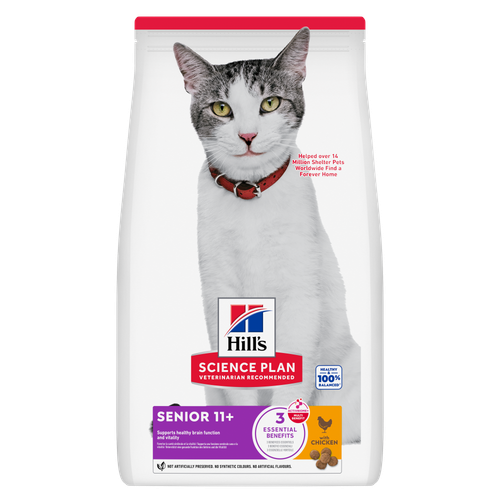
Hill's Science Plan Senior Cat Food with Chicken is a complete pet food, specially formulated with ActivBiome+ Multi-Benefit Technology.
This food supports healthy aging during the golden years. Contains a special ingredient blend to help keep older cats agile, more alert & interactive.
Related articles
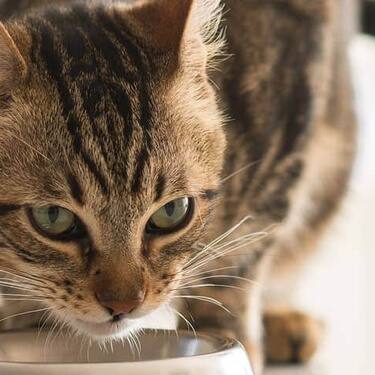
Discover what you can do to spot and support a sensitive cat stomach. See what routines and food you can implement to help your cat be happy and healthy.
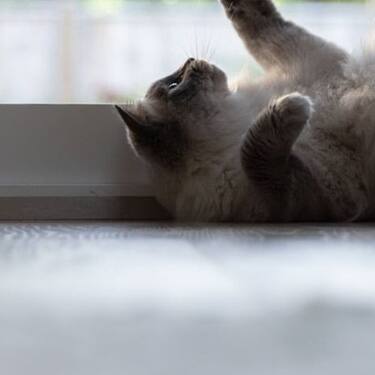
Feeding time can be a wonderful bonding opportunity for you and your cat. Find out how to make the most of it and create a healthy habit with HIll's Pet UK.
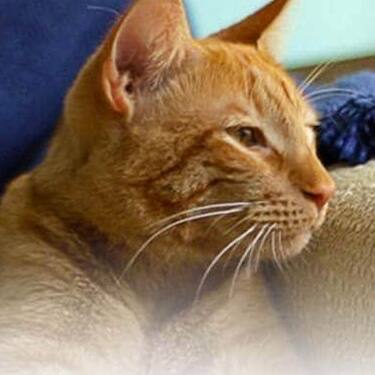
Find the right Hill
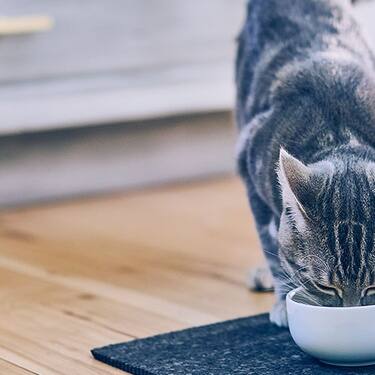
Good nutrition is about the right balance of nutrients. Learn more about health issues when feeding a cat food that has an improper nutritional balance from your friends at Hills Pet Nutrition.

Put your cat on a diet without them knowing
Our low calorie formula helps you control your cat's weight. It's packed with high-quality protein for building lean muscles, and made with purposeful ingredients for a flavourful, nutritious meal. Clinically proven antioxidants, Vitamin C+E, help promote a healthy immune system.
Put your cat on a diet without them knowing
Our low calorie formula helps you control your cat's weight. It's packed with high-quality protein for building lean muscles, and made with purposeful ingredients for a flavourful, nutritious meal. Clinically proven antioxidants, Vitamin C+E, help promote a healthy immune system.

